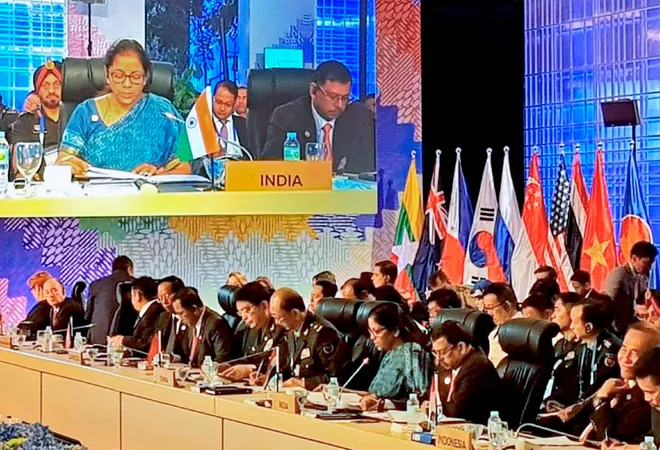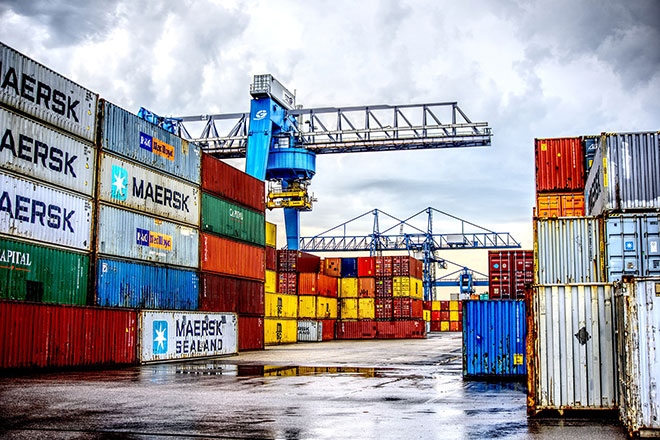 This is the forty sixth part in the series
This is the forty sixth part in the series The China Chronicles.
Read all the articles here.
In August last year, German Foreign Minister Sigmar Gabriel decided to turn the tables on China. In a speech in Paris, he warned Beijing to stop all efforts to divide the European Union and adhere to a “One-Europe” policy. Alas, he did not suggest how to enforce this new confrontational policy, if he intends to.
Gabriel could pick a page from Beijing’s strategic manual. Last week German carmaker Daimler Benz apologised for “insulting the feelings of the Chinese people” by publishing the sentence: “Look at situations from all angles, and you will become more open” in an advertisement. A seemingly harmless quote — but made by China’s favorite enemy, the Dalai Lama. Daimler’s kowtow led to fierce criticism at home, but the critics probably don’t drive Mercedes.
Demonising His Holiness and forcing everyone into submission, who wants to do business with the one and only China has been a well-known strategy for decades, but it is not the only one anymore. A new report launched by two German think tanks, the Global Public Policy Institute (GPPI) in Berlin and the Mercator Institute for China Studies (MERCIS) could well serve as a wake-up call. “Authoritarian Advance. Responding to China’s growing Political Influence in Europe” gives a detailed insight into China’s political-economic toolbox and a stern warning.
Europe needs to “act swiftly and decisively” if it wants to stop the “momentum of Chinese influencing efforts,” recommend the authors. “After all, China’s political model is based on an authoritarian regime intent on strengthening a deeply illiberal surveillance state at home while also exporting — or at least trying to popularise — its political and economic development model abroad.”
The report triggered the expected reaction by the CPI’s international mouthpiece, the Global Times. “Misguided academics promote China-EU confrontation,” reads the headline of an article that would have made Mao Zedong proud. A maybe not so expected reaction reported the Swiss newspaper Neue Zuercher Zeitung (NZZ). According to the NZZ-article, the Global Times prides itself of having indirectly contributed to the removal of Sebastian Heilmann as Head of MERICS by pointing out that his publications are “too political” and “not objective.” The Mercator Foundation that runs MERICS denies these allegations, but they are currently looking for a new MERICS director on their website.

Uncontroversial in Europe is that China is slowly but steadily adding political instruments to its already powerful economic muscle. While Russian attempts to influence public opinion and decision making in Europe have drawn much attention and criticism, China focused for a long time mainly on questions of domestic importance such as Tibet, but Beijing’s public diplomacy has become more assertive.
Uncontroversial in Europe is that China is slowly but steadily adding political instruments to its already powerful economic muscle.
This shows in the ever-growing number of Confucius Institutes in Europe (currently 160), newspaper supplements, media co-operations, invitations for journalists and attempts to invest in crisis-ridden European media outlets. The Chinese Students and Scholars Association (CSSA) has become infamous for trying to bring Western universities to court for events that allegedly insult the feelings of CSSA-members.
While many of these measures are well legitimate within the framework of a democratic state, the problem is that China does not reciprocate them and strongly curtails the work of foreign organisations on its own turf. Add China’s economic strength and the relative weakness of many smaller European countries, it is justified to see a “divide and rule” strategy in China’s public diplomacy. It is therefore a serious threat to the European Union that is already suffering from internal frictions.
One of the new Chinese instruments of public diplomacy is the 16+1 framework, that was created by China in 2012 in order to encourage central and eastern European (CEE) member states and accession candidates to participate in infrastructure projects with China, not least the Belt and Road Initiative (BRI). The 16+1 format makes use of both, the desire of smaller European countries to fill financial gaps in times of shrinking aid from Brussels, and the wish for an easier access to do business with China. Something that larger countries such as Germany and France already have in the form of bilateral dialogues.
Some of the smaller European countries see China as an alternative partner to the European Union, a highly problematic development for which the EU partly has to blame itself. The case of Greece can serve as an example and a warning. The country became the main victim and, indeed scapegoat of the European financial crisis between 2008 and 2015.
As a result, the cash-strapped country turned to China and became one of its first partner in the Belt and Road Initiative. China’s COCSO acquired 67% of the Piraeus Port Authority in Athens, Greece’s main port and invested in many other infrastructure-projects, mainly in the energy-sector. There is also an institutional cooperation between the Athens Press Agency and the Chinese Xinhua.
When Greece blocked a EU statement on human rights in China at the United Nations (UN) in June 2017, European critics accused Athens for “being in the pocket of China.” But the EU has much reason to introspect. Greece has serious grievances over the way the Eurogroup treated the country during the financial crisis. This threw the doors in the otherwise EU-friendly-country wide open to China.
Some of the smaller European countries see China as an alternative partner to the European Union, a highly problematic development for which the EU partly has to blame itself.
But Europe is slowly waking up to the challenge. The president of the European Commission, Jean-Claude Juncker recently offered the Western Balkan states a perspective to join the EU by 2025. Countries like Serbia might indeed have feared that their accession to the Union could be postponed ad calendas graecas — and thus turned towards China as well.
More complicated is the situation in Eastern Europe, where right-wing populist governments in Poland, Hungary and the Czech Republic are not only less sensitive to human rights issues but even promote “illiberal democracy” themselves, such as the government of Victor Orban in Hungary. For Warsaw, Prague and Budapest, China has become a useful tool to show Brussels that there are alternatives to unwelcomed meddling. According to a new report by the European Council on Foreign Relations (ECFR), the bilateral relationship between Hungary and China “has become intensely political since the 2011 financial crisis.”
While business between the two countries is still weak, Budapest apparently tries to please Beijing through preemptive obedience. In February 2017, Hungary prevented an EU letter to condemn the torture of Chinese human rights lawyers and did not sign the joint statement of the UN Human Rights Council in March 2016. In April 2017, the first Chinese think tank in Europe, the China CEE Institute opened its doors in Budapest.

However, the annual 16+1 summits have not yet triggered the desired influx of cash into the CEE region. According to a study by Ernst&Young, China contributes less than 5% of Foreign Direct Investment (FDI) in Europe and that mainly goes to larger countries like Germany, France and Italy.
These countries therefore struggle as well to find the right approach vis-à-vis China. The French China-expert Francois Godement criticised President Emmanuel Macron during a state visit of China’s Xi Jinping earlier this year. According to Godement, Macron overstepped: “the line between pragmatism and cynicism” by signing a common communique with Xi that stressed the commitment of both countries “to the protection of human rights and essential liberties.”
According to a study by Ernst&Young, China contributes less than 5% of Foreign Direct Investment (FDI) in Europe and that mainly goes to larger countries like Germany, France and Italy.
The former German ambassador to China Volker Stanzel, who is also a board member of the Academic Confucius Institute in Goettingen points out that the challenge for Europe lies in the fact that a rule based international order and the respect for human rights are core substance of the European enlightenment. Yielding towards China therefore “needs to have limits.”
But even oil-rich Norway, a former champion of human rights has recently started pussyfooting with China. Beijing froze all political ties with Oslo following the decision of the Nobel Prize Committee to award the Nobel Peace Prize to Chinese dissident Liu Xiaobo in 2010. Norway that is not a member of the EU came out of the cold after a number of goodwill gestures in 2016 and started to negotiate a separate free trade agreement with China. Since then, the government in Oslo has been extremely cautious to comment on Liu, even after his death in 2017.
If rich countries such as Norway succumb to pressure from Beijing, it cannot surprise that poorer ones fall in line or actively seek support from China. Even Australia was deemed as “dependent on China” but “ungrateful” by the ubiquitous Global Times after the government had published a critical paper on China’s role in the Pacific region.
The European Union therefore urgently has to bring its own house in order. Decreasing competition among EU member states, taking smaller members and Eastern European countries more seriously and reviving a spirit of solidarity among Europeans is the best insurance against the Chinese “divide and rule” strategy. An EU-initiative to track Chinese investments and public diplomacy has already started and is a step in the right direction. There is nothing wrong in doing business with China, but avoiding economic dependency must be a strategic goal for the European Union.
The views expressed above belong to the author(s). ORF research and analyses now available on Telegram! Click here to access our curated content — blogs, longforms and interviews.



 This is the forty sixth part in the series The China Chronicles.
Read all the articles
This is the forty sixth part in the series The China Chronicles.
Read all the articles 

 PREV
PREV


